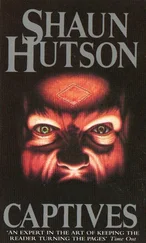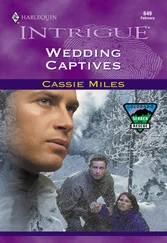Norman Manea - Captives
Здесь есть возможность читать онлайн «Norman Manea - Captives» весь текст электронной книги совершенно бесплатно (целиком полную версию без сокращений). В некоторых случаях можно слушать аудио, скачать через торрент в формате fb2 и присутствует краткое содержание. Год выпуска: 2014, Издательство: New Directions, Жанр: Современная проза, на английском языке. Описание произведения, (предисловие) а так же отзывы посетителей доступны на портале библиотеки ЛибКат.
- Название:Captives
- Автор:
- Издательство:New Directions
- Жанр:
- Год:2014
- ISBN:нет данных
- Рейтинг книги:3 / 5. Голосов: 1
-
Избранное:Добавить в избранное
- Отзывы:
-
Ваша оценка:
- 60
- 1
- 2
- 3
- 4
- 5
Captives: краткое содержание, описание и аннотация
Предлагаем к чтению аннотацию, описание, краткое содержание или предисловие (зависит от того, что написал сам автор книги «Captives»). Если вы не нашли необходимую информацию о книге — напишите в комментариях, мы постараемся отыскать её.
Captives
This is a moving account of a country shaken by communism and anti-Semitism and haunted by recent atrocities, from "a distinguished writer whose vision of totalitarianism is close to Kafka's cloudy menace, universal yet internalized" (Richard Eder,
).
Captives — читать онлайн бесплатно полную книгу (весь текст) целиком
Ниже представлен текст книги, разбитый по страницам. Система сохранения места последней прочитанной страницы, позволяет с удобством читать онлайн бесплатно книгу «Captives», без необходимости каждый раз заново искать на чём Вы остановились. Поставьте закладку, и сможете в любой момент перейти на страницу, на которой закончили чтение.
Интервал:
Закладка:
The opening of the door should have made a noise. You knew the sound exactly. You expected it, heard it, and yet you didn’t. You stepped across the threshold with your hand on the switch. The room appeared. The door was hinged to the frame, rotated with caution, almost closed and yet only pulled to the edge.
To the left of the door, the wide bed covered with a red blanket. You sat on the bed; he sat on the chair, both in silence. You looked at the wardrobe, the wall facing the door, the one narrow bookshelf, high on the wall. The small table. The balcony. You turned on the radio to break the silence but couldn’t find the right station and gave up. You rose and leaned into his chair. Keeping quiet, he propped himself for an instant on the lap of your skirt. You passed a hand through the buttons of his blue shirt. You turned off the light.
Fragmenting the darkness, horizontal bands of light from the street came through the slatted blinds. Penumbrae traced outlines of objects. Evidently looking at you, he stayed on the chair, motionless and probably absorbed in his own thoughts. Without looking at him, you moved toward the edge of the bed, where you remained standing. You unbuttoned your light, short-sleeved blouse. You took it off. It fell to the ground. Your hands parted the zipper of your skirt, which slid down and fell on top of the blouse. You lowered your arms. A small clump of silk coiled over the white skirt. Starting at the waist, you moved your hands down along your thighs, over your small round haunches.
There was no movement, not a sound. Maybe he looked at you. You remained in front of him, a naked statue. You were beautiful — your small breasts, full warm shapes. Long, toned legs. His eyes dilated in his lunatic face. You knew you were beautiful then. You looked at him, smiled timidly, guiltily. You raised your arm and slid your fingers through your hair, letting it flow down your back. When you brought your hand back down, your hair came with it, clenched in your fist. You let the wig fall over the little heap of clothing gathered at your feet, and shrugged your shoulders slightly as if to say, what can you do? And went on smiling the same level smile you’d worn all along.
You were truly naked now, and so you remained straight and silent. Your short hair — like an army recruit’s or a pale, adolescent prisoner’s — increased the intensity of your gaze. . The body of a Greek statue, slim and unreal, with sweet breasts and rigid legs. . Naked, whole, ready: you spread out on the bed, crucified under the whitewashed ceiling, oppressed by the total silence. . Later: something or someone rustled. The pain of hearing made you close your eyes. Something or someone was moving nearby, and it hurt, unbearably.
Once, he passed his hand over your eyes, which had been closed for a long time. You felt the skin of another body against yours — an instant of kindness, of peace. The body rolled over, time after time, clenching wildly, dissociated, famished, furious. The summer night roared.
Fingers were growing from the foreign body, probing for elbows, shoulders, arms; the body had drawn close, collapsing upon itself. . the arms continued curving into caresses, the legs, shaking. You were breathing at the same time, brother and sister, until the shock hit him: a sudden earthquake, horrified by the nightmare of kindness, unexpectedly abandoned, abandoning.
Again, the weight of silence: the ceiling suspended you. Again, the body twisted, the hand slid on shoulders, cheeks, eyelids, the strange hand climbing toward the damp eyelids and stopping, trembling like the wing of an injured bird. The neighboring body was trembling, withdrawing, returning. It was caressing your thighs, looking for your heat in some hiding place. You, with the hair of an army recruit or a prisoner, had damp shoulders, breasts weighted with weeping.
The tears flowed from the beginning, from before the beginning, from all along: from the moment you stretched out on the bed with your arms spread and soft things rustled over soft things, dangling on the edge of the bed. . you were waiting with closed damp eyes. . the strange hand had grasped your hands — first the left, then the right — and things fell down again. . you opened your eyes in the white ceiling, the summer night galloped alongside with tears like drops of sleet and hail. Out of the friction and spasms of bodies, the sudden disengagement of shoulders, arms, and chests: fulfillment had culminated. You were crying. . maybe you cried the whole time, from the beginning, unheard crying, inaudible even to you, the same as the closing door that should have been clearly heard, but somehow wasn’t. The movement of clothes, arms scrounging through fabric, the sheet, the body by your side, distant steps — no, first he touched one of your fingers, trapping your finger, squeezing it lightly in farewell. The footsteps moved toward the door; the door should have opened, as you knew it must, for the sound of closing to be heard. But the sound had disappeared, perished without a trace. The stranger had remained in the same spot, near the bed. Silence passed: time and silence.
You sat up halfway, you looked at the door, stuck to the edge of the wooden frame. It seemed closed, but it was only brought to the edge of the doorframe, shut too gently, almost closed, just enough to let a strip of light into the room. You remained in the same position, oppressed by the white ceiling, by the darkness and silence. Then the summer night broke open. Through the wooden blinds there were two young faces to be seen, ravished by the crack of the moon. A thousand stars on the blue background in the hole of the well. You closed your eyes, fast.
Easy sleep without tremors or dreams. You woke at dawn, at the same hour as always. You felt your shoulders, your cheeks. Dry: in their proper places. You lifted the wiry mound of hair from the floor. You sat the wig beside you, on the bed. Your feet landed on the chilly wooden floor. You picked up your clothes from the floor, and put them on. Smoothing your cheeks with your hand, your body began to awaken. You took the wig from the bed, and put it back on, straightening it approximately. You looked at the room, opened the door to the balcony.
In the fresh air and the light of a summer dawn, you crossed the room. The door was open, almost imperceptibly. The fugitive had left this as evidence. You walked to the window and went out onto the balcony. Busses were just beginning to leave, bicycles set in motion. The commute was beginning again, the same as always. In the street, the rat race was livening up.
You might have been able to face the astonishment of the heavens by leaping beyond the eventless calendar, beyond the crowds of hardworking, famished, overly submissive rodent workers. The earth without paths or surprises, without beginning or end, a resigned collapse, a silent tomb, the delirium of everyday absence.
You looked at the white walls and then at the street again. You panicked, you ran down the stairs: another morning, the kneeling of the slaves approves of the sun.
• • •
Smoky shadows, starving office slaves returning to their nests. The patrols and pickets to their posts, the spies running in high gear: the amnesiac mob. You can hear the clank of spoons and glasses, doors bumping against beds, and ringing telephones.
In the mouth of the stove, something revolves. It looks like a ring-shaped loaf of bread: a small curl with leaves of ash. The pile of burning pages rotates: burnt letters, fairy tales that have become black powder in the wastebasket under the piano teacher’s instrument. Ash-colored smears: the paws of a carbonized monster.
The fugitive gathers strength for the great, unfulfilled deed. The surrounding apathy prepares for retribution. Hatred promises to fulfill the dreams of explosions. Here, the door closed itself: the lock turned itself, the door fell back into its frame with the short piercing sound of pinched metal like a pistol’s click. . but that was long ago, a century ago, at least. Games of forgetting, of giving birth, of remembering, of revolting. He should stick his temple to the cold metal of the tape recorder, the sharp corner of some table, the wardrobe mirror, the telephone receiver, the door handle — any solid object that will confirm his existence. Then he should pick out the buried histories that he didn’t have the courage to utter and that he’ll carry with him forever: the treasure and the guilt.
Читать дальшеИнтервал:
Закладка:
Похожие книги на «Captives»
Представляем Вашему вниманию похожие книги на «Captives» списком для выбора. Мы отобрали схожую по названию и смыслу литературу в надежде предоставить читателям больше вариантов отыскать новые, интересные, ещё непрочитанные произведения.
Обсуждение, отзывы о книге «Captives» и просто собственные мнения читателей. Оставьте ваши комментарии, напишите, что Вы думаете о произведении, его смысле или главных героях. Укажите что конкретно понравилось, а что нет, и почему Вы так считаете.












